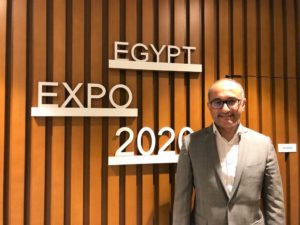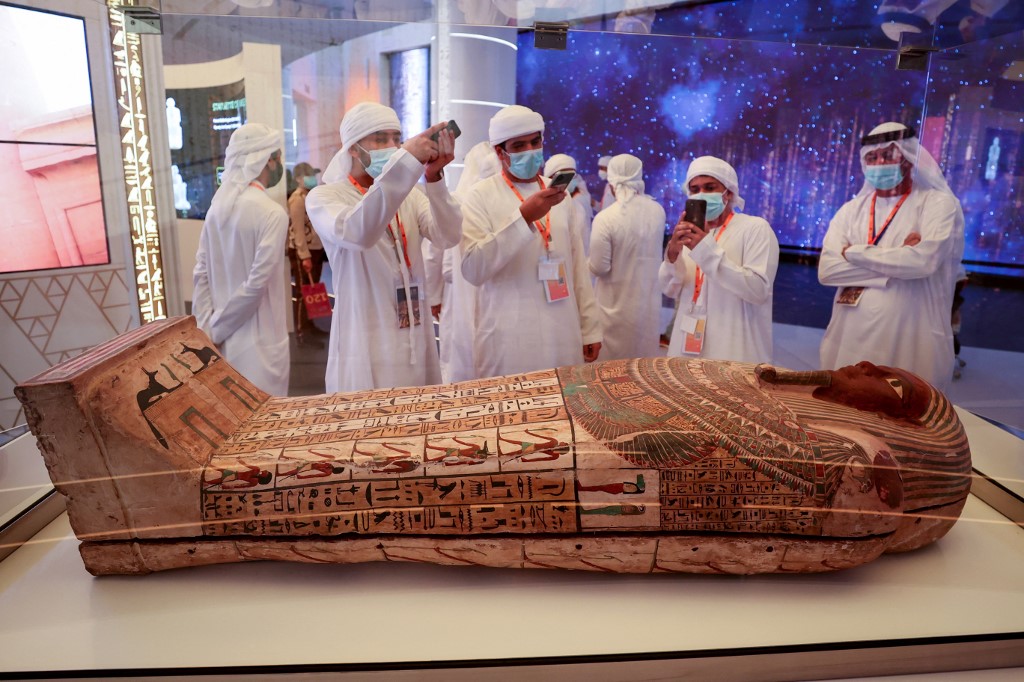São Paulo – Priest Psamtik’s painted wooden sarcophagus, dating from 3,800 years ago, was recently discovered in a tomb in the Saqqara region in Egypt and is one of the biggest attractions at Expo 2020 Dubai, on display in the Egypt Pavilion. The other pieces on display are replicas, such as the golden bust of Tutankhamun. The Pavilion located in the Opportunity District has the theme “Legacy empowering Future” and, in addition to showing the country’s legacy in objects, architecture, and videos telling its millenary history, presents business opportunities in the commercial, port, and export sectors, electronics industry, fish farms, and the Suez Canal.

ANBA was received by the head of the Egyptian Commercial Service and commissioner-general of the Egypt Pavilion at the Expo, Ahmed Maghawry Diab. “Our relationship with Brazil is excellent; we have a free trade agreement with Mercosur and all the tools to improve the trade balance. We mainly buy sugar and beef from Brazil and export fertilizers, and there is great potential for growth in the agribusiness, agricultural machinery, and chemical sectors,” said Diab.
The commissioner stated the Pavilion brings together everything Egypt wants to present to the world. “We are developing and positioning ourselves differently. We are positioned in a critical place in terms of proximity to Europe and other African countries, and we want to make our country a hub for trade, transport, logistics services, among other sectors, with more efficient economic zones,” he said.
The Arab country already has industrial zones by Russia and Poland and is in talks with Italy and Spain, explained Diab. He informed Brazilian companies could also set up in these areas, mainly from the agribusiness, machinery, and petrochemical sectors. “I would love to receive Brazilian investors and show them the region,” he declared.

According to him, the message Egypt wants to convey is simple. “We may not have the greatest technology in the world, but we have each other, we believe in ourselves and what our ancestors built; and we are working on it to develop our future, with smart cities, renewable energy, and a good health system for the population,” he said, mentioning other sectors the country is investing in to promote the well-being of its citizens, such as sports, education, culture, industry, among others.
On the first floor of the Pavilion, it is possible to interact with digital terminals full of information about the history and present of Egypt, such as art, cinema, and literature. Another attraction is a time machine simulator that takes visitors on a journey from 2,500 BC to the present and gives a glimpse of the country’s modern and technological future in 2070. According to him, at the end of the exhibition, the Pavilion will be disassembled. “Anyone intending to invest, study, or travel to Egypt can learn more on these subjects in our Pavilion,” he said.
Translated by Elúsio Brasileiro




